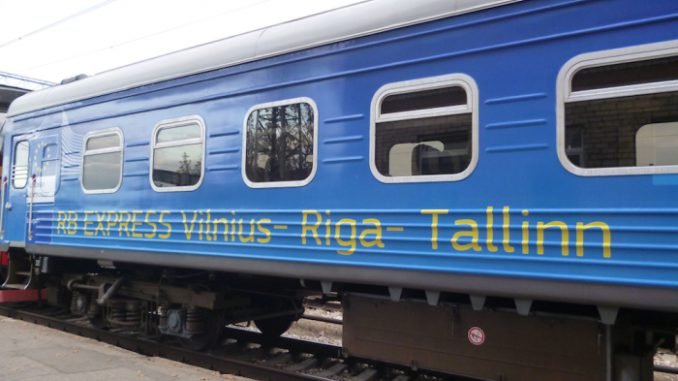
“Actually, it is primarily Lithuania’s responsibility because it is a joint strategic project funded by the European Union and Lithuania looks the worst here. We are causing the most problems as to the project implementation. As I have already mentioned before, this is due, to a large extent, to what we call a state within a state, Lietuvos Geležinkeliai (Lithuanian Railways, or LG),” Grybauskaitė said in a news conference on Wednesday after a meeting with Kersti Kaljulaid in Vilnius.
LG was the last party to sign Rail Baltica’s contracting scheme agreement, thus drawing criticism from the European Commission.
The Lithuanian president expressed her hope that the new government will assume responsibility for the state railway company and will not allow it to dictate the terms for the Rail Baltica project.
“I do hope — we have no other choice now, because we are pressed both from outside and by criticism and a risk of sanctions — that the new government will be able to assume responsibility as LG is a state enterprise,” Grybauskaitė said.
“We now see LG dictating its terms to one or another government and effectively sabotaging the speed and implementation of this project,” she said.
When asked at the news conference if Lithuania was harming the project, the new Estonian president said that the project had to be completed despite concerns in Lithuania.
“The European Union is investing in trans-European transport corridors and this is a huge opportunity for us to become part of it. This is a safe and reliable connection to Central Europe. It is important that we complete this transport corridor,” she said.
With LG delaying the signing of the Rail Baltica agreement, the European Commission threatened to suspend funding for the project in Lithuania. However, Deputy Transport Minister Arijandas Šliupas said on Tuesday that the country was no longer at risk of losing the EU money and that an agreement on a 191-million-euro grant was likely to be signed in late November.
The EU may provide up to 85 percent of the project’s total costs in the 2014-2020 period. The European Commission approved 106 million euros for Rail Baltica works in Lithuania last year and another 191 million euros this year.

Be the first to comment